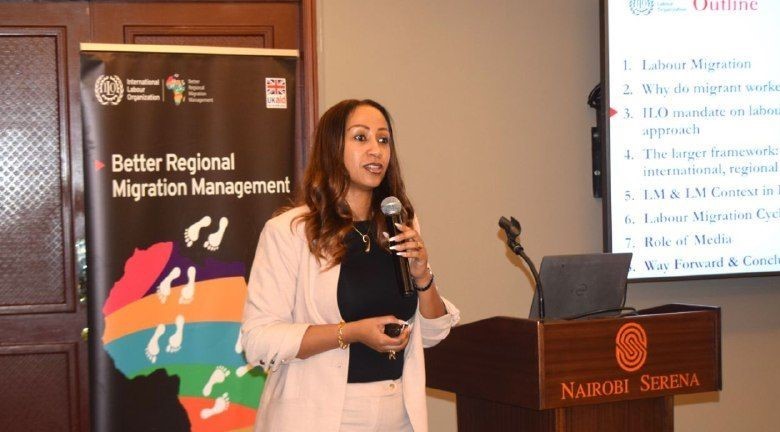Media Breakfast in Kenya Highlights the Role of Journalism in Promoting Fair Labour Migration
Posted at October 7th 2025 12:00 AM | Updated as of October 7th 2025 12:00 AM
Region/Country : Kenya
|Thèmes : Media, Labour migration governance, Labour migration
The International Labour Organization (ILO), through its Better Regional Migration Management (BRMM) programme, convened a Media Breakfast Meeting in Nairobi that brought together more than 50 journalists from local and international outlets, sitting together with representatives from the Kenyan government and labour migration stakeholders.
The event took place in order to develop a constructive dialogue between the media, government, and the ILO on improving public understanding and coverage of labour migration. Participants discussed the media’s essential role in shaping accurate narratives around migration, countering misinformation, and highlighting the human and economic dimensions of migrant workers’ experiences.
Discussions also explored the role of journalists in promoting safe, regular, and fair migration pathways, while addressing common misconceptions that contribute to misinformation and stigma. Participants examined challenges such as fragmented messaging, the absence of a coordinated communication framework, and the limited accessibility of accurate information for potential migrants. These gaps were identified as key factors driving reliance on informal information channels, which can expose migrants to misinformation and exploitation.
During the event, a new toolkit for journalists on Reporting on Forced Labour, Fair Recruitment and Labour Migration in the East and Horn of Africa Regions was also presented, providing them with guidance on ethical reporting, key labour standards, and how to create fact-based, balanced stories that highlight the positive contributions of migrants.
The meeting concluded with a shared commitment to strengthen collaboration between the media and migration actors, fostering more informed and responsible reporting on labour migration across the region. This event, once again, highlights that the media has a critical role in influencing the narrative around labour migration and advocating for better labour migration governance.


